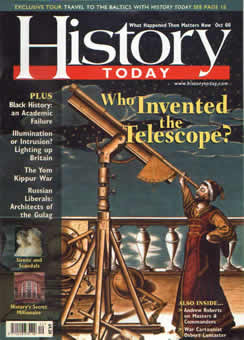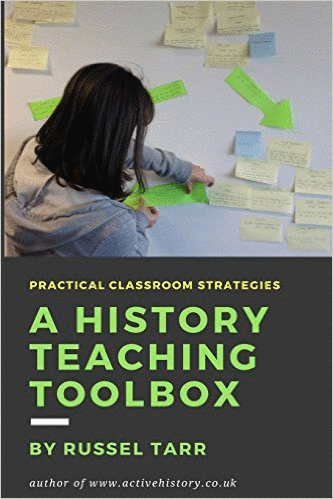The Extended Essay is an individual project of 4000 words.It is a chance to study a topic that interests you which is not covered by the syllabus.
|
 |
It gives you a chance to study in real depth a topic that you have an interest in.
It can relate to any period and any topic outside of the past ten years.
It gives you the chance to work closely with your History teacher to 'fast-track' your historical skills with one-to-one tutoring.
As such it is a great opportunity to produce a mature academic study on something that you might never again have the chance to research.
Similarities:
Both the IA and the EE in History award students who choose an interesting question which they research thoroughly and answer coherently through critical evaluation of evidence.
Differences:
The IA is only 1500 words long; the EE is 4,000 words.
The EE requires a much heavier emphasis on the use of primary source material than the IA.
The IA is structured into specific sections; the EE is structured more flexibly.
The IA markscheme grades each section separately; the EE markscheme grades each criteria across the essay as a whole.
You will select which of your IB subjects will form the basis of your EE in the Spring Term of the first year of IB. This will usually (although not always) be one of your Higher Level subjects. The supervisor will set a series of internal deadlines and meetings for each student to ensure the completion of the study in a timely fashion.
Start by considering if there is a period / place / person / issue in history that would like to investigate further. Maybe this is something you have read a little about, watched a film about or are interested in from your other studies / hobbies. The only strict rule is that anything that happened in the past 10 years is not allowed.
The three main focuses of study tend to be focused on
- EITHER Causes of an event / situation;
- OR Consequences of an event / situation
- OR Relevance of particular evidence about an event / situation (e.g. a painting, novel, film, biography).
The following resources may help you in your quest for a topic:
Online archives:
- History Today Archive (password required - see your teacher)
- ActiveHistory Podcast Archive
- BBC History Magazine Archive
Other resources:
- History Department Magazine collection
- History Department DVD collection
Once you have settled upon a topic, you have to then turn this into a question - a problem that your study will solve, in other words.
The following table could help you get started
| To what extent was... | [Event] [Situation] [Development] [Individual] [Policy] |
responsible for... |
[Event] [Situation] [Development] [Policy] |
| the most important result of... | |||
| How useful is... | the Novel... the Album... oral testimony... photography... the painting... the film... |
to the historian studying... | |
| How successful / significant was... | [Individual] (e.g. politician / sportsperson / entertainer / film director / etc) | in the context of... |
The following list of past Extended Essay questions from the IST will also be helpful:
- How has politics influenced Berlin's architecture over the 20th century? (Predicted 'A')
- To what extent was World War Two a catalyst for British Decolonisation? (Predicted 'B')
- How decisive was Spanish intervention in World War Two? (Graded 'A')
- How far did Nietzsche's ideas influence the Third Reich? (Graded 'B')
- How reliable is Hogarth's 'The Rake's Progress' as evidence of 18th century London? (Graded 'A')
- How and why do Historical sources disagree about the life and career of Bonnie Parker? (Graded 'B')
You will initially be required to identify at least THREE articles/books and TWO websites that will form the basis of your study. To help you find the books/articles, use these
History Today Magazine Search (password required to access articles after search - see your teacher)
In addition, for the Extended Essay you will be expected to make especially heavy use of primary sources.
I have also produced useful video: "Google Books for Student Research: 3 minute guide":
You are now ready to complete the Initial Proposal Sheet and hand it to your teacher.
Make sure that this is a detailed, considered proposal. Your supervisor will schedule a meeting with you to talk about how you plan to structure your essay in particular.
You are now ready to start work on the study itself. To help you structure your study effectively, make use of the following resources:
Six Steps for Writing your Extended Essay in IB History
A one-sided sheet provided step-by-step guidance for students on how to go about producing their Extended Essay.
Style Guide: Formatting your Extended Essay
A simple summary sheet providing a useful checklist to help students format their final study appropriately.
Completing the "Reflections on Planning and Progress" Form
A suggested timetable for students
to help them complete this important part of the study in a timely fashion.
Marksheet and Guidance
A student-friendly version of the IB mark scheme, combining the generic guidance from the IB as well as its subject-specific criteria for History.
Glossary: Historiographical and Subject-Specific Terminology for History Extended Essays
Russel Tarr, Head of History, International School of Toulouse

© 1998-2026 Russel Tarr, ActiveHistory.co.uk Limited (Reg. 6111680)
1 Torrin Drive, Shrewsbury, Shropshire, SY3 6AW, England
Privacy Policy | Contact






